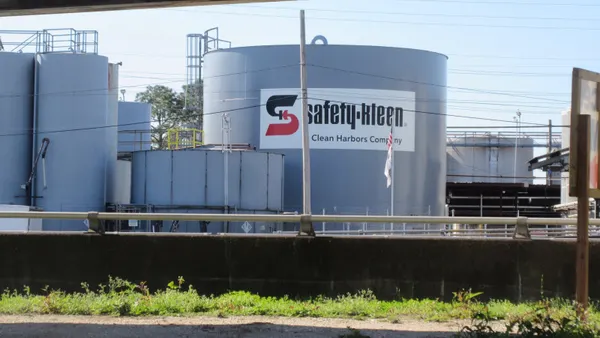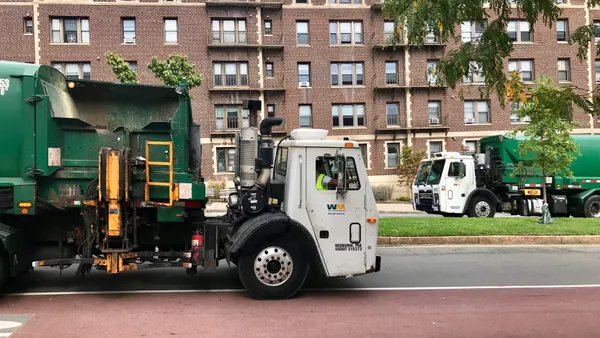Dive Brief:
- In a letter to Environmental Protection Agency (EPA) Administrator Scott Pruitt, Pennsylvania Gov. Tom Wolf asked for the administrator to reduce volumes required under the Renewable Fuel Standard (RFS). Wolf did, in his letter, note overall support for the program.
- Wolf said the Northeast region of the U.S. would feel "severe economic harm" under current proposed levels because of "the high cost of purchasing RINs [Renewable Identification Numbers] to comply with the RFS."
- Wolf added in the letter that because of the increasing costs of RINs, at least two merchant refiners in Pennsylvania now spend more annually on purchasing RINs than they do on payrolls costs. An EPA spokesperson told Waste Dive in an email that the agency would review Wolf's letter and respond through the appropriate channels, but did not offer further specifics.
Dive Insight:
Requests for waivers from states aren't the only factor that could complicate the fate of the RFS. Unfriendly officials in positions in the White House and EPA could also have an effect. As recently noted in Politico's Morning Energy newsletter, some senators who support biofuel development might block the nomination of Kathleen Harriet White to run the White House Council on Environmental Quality, because of concerns they have over her views on the RFS. In 2013, White wrote that the RFS should be repealed. A repeal of the RFS could be damaging to waste-to-energy sectors, as biogas — from landfills and from digesters — are included in the RFS.
Additionally, in recent weeks, several Midwest lawmakers have made clear their concerns about preserving the RFS and senators have said they were closely monitoring nominations to certain offices within the EPA. Pruitt has said he won't pursue any further lowering of required volume under the RFS, though biogas producers would likely prefer to see volumes increased.
While there is an ongoing attempt to bring tax credits to biogas and other waste-related energy projects, such efforts are absent from the new Republican tax bill in the House of Representatives. So, while it is unlikely that the RFS will be repealed — President Trump has expressed his support for it in the past — it may be just as unlikely that biogas projects get any additional tax credit or other government support. Despite this, it does still seem to be a dynamic market, with new projects being announced on a regular basis.












